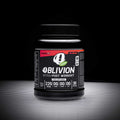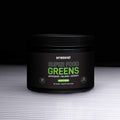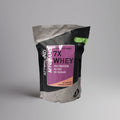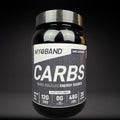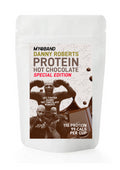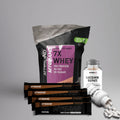How To Achieve Your Summer Body Goals (Whatever They May Be!)
Posted by PROPROTEIN LTD ADMIN

Summer’s here – hoorah! And if you’re anything like us, you’ll want to look and feel your best. Everybody’s priorities are different. Some people may want to tone up in some areas, while others may want to feel as though they have more energy, and put more of a ‘spring in their step.’
None of us are built the same, which is why people’s goals can vary widely from one to the next. However, regardless of what you’ve set your sights on achieving, most people can benefit from eating a balanced diet that’s healthy and nutritional and taking part in regular exercise.
If you’ve already ticked these two boxes, then great, keep it up! But if you do one and not the other or could do with embracing both areas, here are some practical pointers for how you can incorporate healthy eating and exercise into your everyday lifestyle:
HEALTHY EATING
- Consume the right amount of calories for you – based on your height and weight and how much energy you tend to burn off each day. As a general guide, an average man needs around 2,500kcal (10,500kJ) a day to maintain a healthy body weight. While the average woman needs around 2,000kcal (8,400kJ) a day
- Make sure your main meals contain one higher fibre starchy carbohydrate – they include potatoes, rice, pasta and cereals and, contrary to popular belief, aren’t fattening. These carbs are actually proven to contain less than half the calories of fat
- Make sure you’re eating your five a day – we’re sure you’re familiar with this campaign, but if you’re not, we’re all advised to eat at least five portions of fresh fruit or veg a day. It can be fresh, frozen, canned or juiced too, which makes things a little easier. (You’ll find more details about it right here)
- Always, always eat breakfast! – we know we know…sometimes it’s too early or you just don’t feel hungry, but it’s the most important meal of the day, so don’t skip it! Think about how many hours we sleep for and then how long your body has to wait to be nourished again if the next meal you eat is at lunchtime. You can keep it light too – for instance, a yoghurt, smoothie or a piece of fruit will do the trick
- Up your fish intake – believe it or not, fish is a really good source of protein. Oily fish, such as mackerel, salmon and sardines, are also packed full of vitamins and minerals too, such as vitamins A and D and magnesium
- Set yourself an exercise regime – psychologically, you’ll have committed to it, simply by carrying out the act of creating it and will therefore be more inclined to want to see it through. It’ll also make you think about the type of exercise you want to do
- Be realistic about it – everybody’s routines are different. Some people have the time to exercise every day, some people barely have time to exercise once a week. Meanwhile, some people religiously work out for an hour in the morning, while others prefer to take part in high intensity interval training (HIIT) after work. The choice is yours and very much depends on you, your lifestyle and your body
- Get your exercise right – do you want to feel fitter overall? Maybe you just want to make improvements here and there? Sessions, such as boxing, circuits and HIIT, are great all-body workouts, while spinning works the legs and cardio, and yoga and pilates help strengthen the core. The important thing is that you find an exercise you feel most comfortable doing, as you’ll be more inclined to want to do it
- Listen to your body – you may have set yourself some big targets, which means you’ve got to work doubly hard to meet them, right? Wrong, overworking your body and not letting it rest when it needs it can lead to injuries and more damage in the long-run. If you’ve exercised for two days in a row and are feeling really tired, that’s fine, take a break for a day or two! Just don’t leave it so long that you get out of the routine of doing it!
- Don’t forget about those quick wins – what do mean when we say ‘quick wins?’ We mean those little tweaks you can make to your everyday routine that mean you can incorporate exercise into your day without really realising it. For instance, walking instead of driving and cycling or walking to work. According to the NHS, 19 to 64-year-olds should take part in at least 150 minutes of moderate aerobic activity, such as cycling or brisk walking each week, to stay healthy.
We hope you’ve found these pointers useful? How many of them do you already do and how many are you planning to do now that you’ve read this post?
Don’t forget, our range of products can help you make sure you’re taking on the nutrients and protein you need too.
TAGS:




